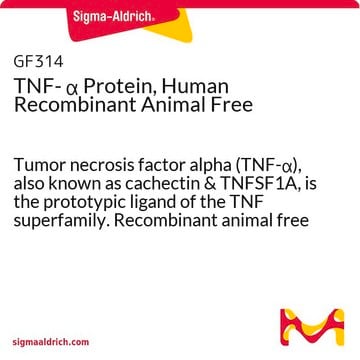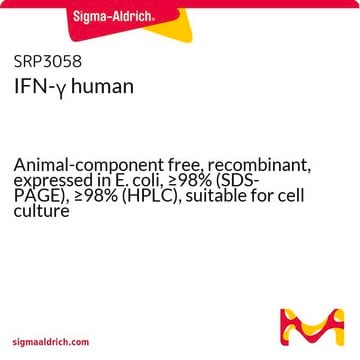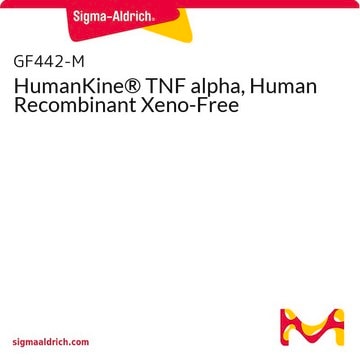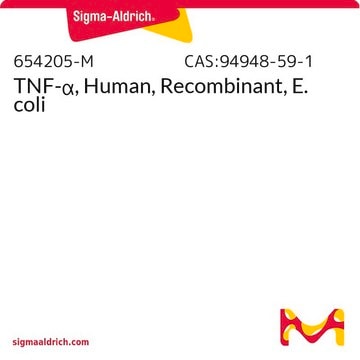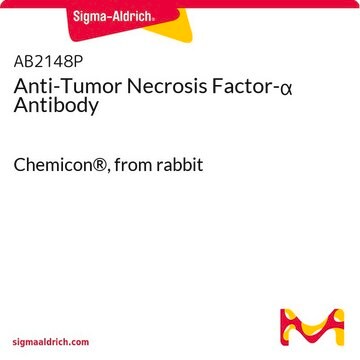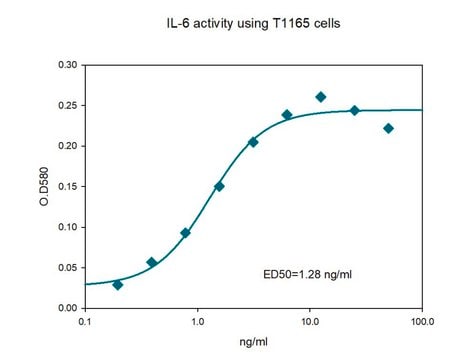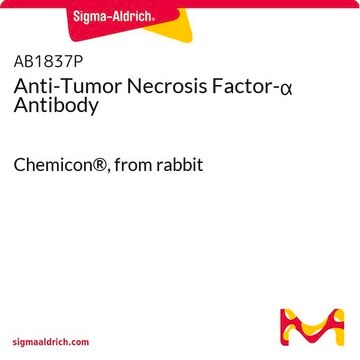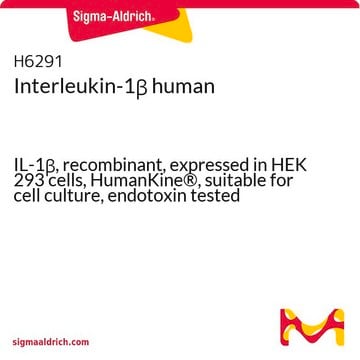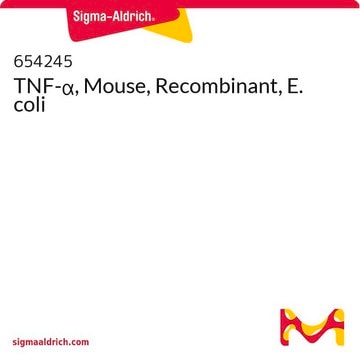Fontos dokumentumok
SRP3177
TNF-α human
Animal-component free, recombinant, expressed in E. coli, suitable for cell culture
Szinonimák:
Cachectin, Cytotoxin, Differentiation-inducing factor (DIF), Necrosin, Tumor Necrosis Factor
About This Item
Javasolt termékek
biológiai forrás
human
Minőségi szint
rekombináns
expressed in E. coli
Teszt
≥95% (SDS-PAGE)
Forma
lyophilized
hatékonyság
≤0.10 ng/mL ED50
molekulatömeg
17.4 kDa
kiszerelés
pkg of 50 μg
technika/technikák
cell culture | mammalian: suitable
szennyeződések
≤1.00 EU/μg endotoxin
UniProt elérési szám
kiszállítva
wet ice
tárolási hőmérséklet
−20°C
Géninformáció
human ... TNF(7124)
Általános leírás
Alkalmazás
Biokémiai/fiziológiai hatások
Szekvencia
Fizikai forma
Feloldás
Tárolás és stabilitás
Tárolási osztály kódja
13 - Non Combustible Solids
WGK
WGK 3
Lobbanási pont (F)
Not applicable
Lobbanási pont (C)
Not applicable
Válasszon a legfrissebb verziók közül:
Analitikai tanúsítványok (COA)
Nem találja a megfelelő verziót?
Ha egy adott verzióra van szüksége, a tétel- vagy cikkszám alapján rákereshet egy adott tanúsítványra.
Már rendelkezik ezzel a termékkel?
Az Ön által nemrégiben megvásárolt termékekre vonatkozó dokumentumokat a Dokumentumtárban találja.
Az ügyfelek ezeket is megtekintették
Cikkek
Discover answers to your frequently asked questions about animal component-free, xenobiotic-free, and chemically defined media and reagents for cell culture.
Tudóscsoportunk valamennyi kutatási területen rendelkezik tapasztalattal, beleértve az élettudományt, az anyagtudományt, a kémiai szintézist, a kromatográfiát, az analitikát és még sok más területet.
Lépjen kapcsolatba a szaktanácsadással


